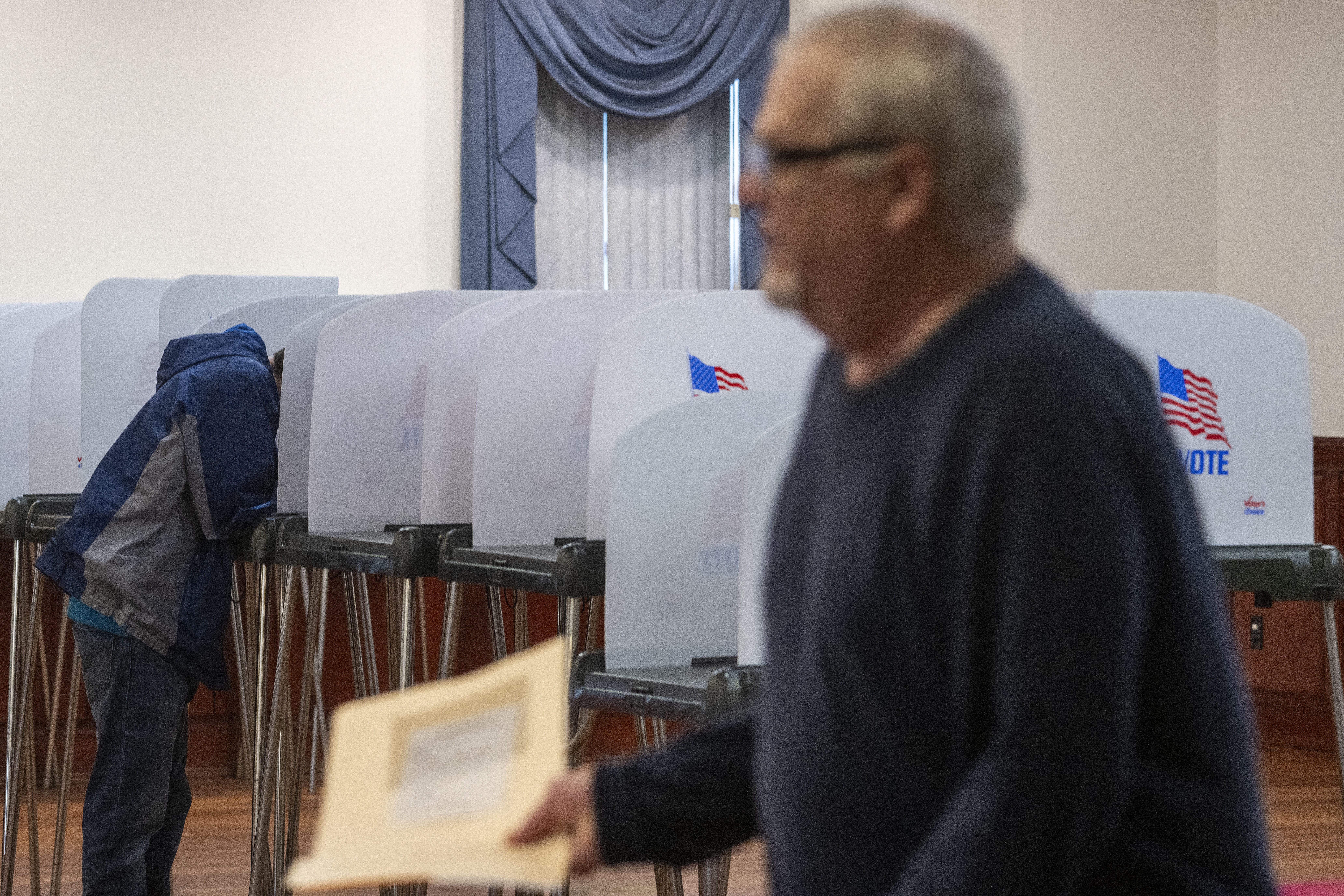A wedding today can be a meticulously detailed blowout event complete with expensive touches like champagne towers and live wedding paintings. Buckling under the pressure to have an Instagram-worthy wedding often means borrowing tens of thousands of dollars to cover the cost — and starting married life burdened by debt, according to a U.S. News survey.
Between Feb. 1 and 7, U.S. News ran a nationwide survey of 1,205 Americans who got married in the past year with a wedding ceremony and reception, conducted through PureSpectrum. We asked newlyweds a series of questions about their wedding expenses, including how they paid for the wedding and why they chose certain funding methods. Here’s what we found:
[Read: Best Personal Loans.]
— Over half of newlyweds (56%) took on debt to pay for their wedding, tapping credit cards (39%), bank loans (18%), family loans (18%) or a combination of them. Among those who borrowed money, 48% say they weren’t expecting to go into debt when they were initially planning their wedding, and 42% regret going into debt over wedding expenses.
— Big weddings come with higher price tags — and larger debt burdens. Newlyweds who had large weddings (more than 150 guests) were twice as likely to go into debt to pay for it than those who had small weddings (fewer than 50 guests), at 65% and 32%, respectively. While 42% of those who had a small wedding paid entirely in cash, just 16% of those with large weddings did the same.
— Forty-four percent of newlyweds received parent or family contributions, but only 11% say their relatives footed the entire bill. Nearly half (48%) of those with large weddings got financial help from family, compared with a third (33%) of those who had small weddings.
— Most newlyweds (65%) spent $10,000 or more on their wedding. About a third (32%) say the venue was the largest wedding expense, followed by catering/food (19%) and travel/lodging (12%). Thirty-eight percent thought about eloping after adding up their wedding expenses.
— Nearly a third (31%) regret how much they spent on their wedding, including 37% of those who had large weddings but just 19% of those who had small weddings. More than half (54%) regret how much they spent on certain services, most commonly the wedding venue (21%) and the food (19%).
Till Debt Do Us Part: Wedding Debt Is Common
Tradition dictates that the bride’s family pays for the wedding, but our survey found that couples are picking up the tab for their own wedding expenses. While 44% of newlyweds in our survey received parent or family contributions to help pay for their wedding, just 11% say their family paid for the wedding in full.
Likewise, two-thirds of respondents (65%) used cash or savings to pay for their wedding, but less than a quarter (23%) paid using only cash. When family funding and cash run short, couples are often forced to finance the gap with credit cards and loans. Here’s how respondents ranked their wedding funding sources, from largest to smallest:
1. Cash or savings.
2. Parent or family contributions (that didn’t need to be repaid).
3. Credit cards and carried a balance.
4. Loan(s) from a bank, credit union or lender.
5. Loan(s) from family (that need to be repaid).
Over half of newlyweds (56%) borrowed money to help pay for their wedding via credit cards, loans or a combination of both. About two in five (39%) say they used credit cards to pay for wedding expenses and carried a balance — which often means paying interest rates of 20% or higher. Nearly a fifth (18%) took out a loan from a bank, credit union or lender to finance wedding expenses, and about as many (18%) borrowed money from their family.
Wedding debt was an unexpected surprise for many newlyweds in our survey. Among those who borrowed money, 48% say they didn’t think they would go into debt when they were initially planning their wedding. Additionally, 42% of them regret going into debt over wedding expenses.
31% of Newlyweds Say ‘I Do’ Regret Overspending
Overall, nearly a third of newlyweds (31%) regret how much they spent on their wedding. The most common reason why newlyweds experienced regret was that they spent more than originally planned (35%), followed by starting their married life worried about debt (27%). About one in five regretful newlyweds (20%) believe they were overcharged for services, and one in seven (14%) say their wedding just wasn’t as much fun as expected.
A few respondents took the time to share their regrets: “Neither of us actually wanted a big wedding, but my wife’s parents insisted,” writes one newlywed. “We could have used the money for a down payment on a house,” another says. Some allude to the fact that they married “the wrong person” or “are no longer married” — one simply says, “Divorce.”
Over half (54%) regret how much they spent on certain services, most commonly the venue (21%) and catering/food (19%). About an even share regret how much they spent on gifts for guests (17%), beverages/alcohol (16%), flowers (16%), travel/lodging (15%), wedding cakes (15%), entertainment (15%) and wedding planners (15%). A tip for those who might regret spending thousands on a wedding cake: a Pittsburgh-style cookie table does just as well.
That being said, there’s still a 70% majority of newlyweds who don’t regret how much they spent on their wedding. Among them, the most common reason why is that the money was well spent on their special day, with 55% of respondents saying so. About a quarter (26%) say they stayed within budget, and a fifth (19%) say they were able to get good deals on services. As one respondent phrases it, “It was cheaper than you think!”
[Read: Best Debt Consolidation Loans.]
By the Numbers: Small vs. Large Weddings
Many couples face pressure from their family to open up the guest list to include distant cousins, their parents’ work friends and sometimes even the entire neighborhood. If you’re looking for a reason to convince your family to trim the fat from your guest list, keep these next few survey results in your back pocket.
Most newlyweds (51%) held a medium-sized wedding with between 50 and 150 guests, while 28% had large weddings (more than 150 guests) and 21% had small weddings (fewer than 50 guests). It’s no surprise that there’s a direct correlation between wedding size and total cost: Nearly 30% of those with large weddings spent $25,000 or more, compared with just 3% of those who had small weddings. Likewise, 51% of those who had small weddings spent less than $5,000, while only 8% of those with large weddings said the same.
The larger price tag of big weddings comes with outsized financial burdens. Two-thirds (65%) of those with large weddings took out debt to help pay for it, compared with a third (32%) of those who had small weddings. Those who had large weddings were much more likely to regret how much they spent than those with small weddings, at 37% and 19%, respectively.
Additionally, 42% of those with small weddings paid for them entirely in cash, compared with just 16% of those with large weddings. Those with large weddings did get extra help from family: Nearly half (48%) of those with large weddings received family contributions, compared with a third (33%) of those who had small weddings.
Some people might tell you that the money you receive as wedding gifts will offset the cost of a larger wedding, but don’t take that at face value. That may have been true 20 or 30 years ago, but inflated wedding costs mean it’s not necessarily a guarantee that you’ll receive more money than you spent on the wedding itself. If you can’t afford the wedding on your own, don’t take that risk.
What Engaged Couples Can Learn From Our Survey Findings
Don’t Be Afraid to Disrupt Wedding Etiquette
Certain things seem synonymous with weddings, like white dresses, elaborate cakes and fresh flowers. But all wedding traditions started somewhere: England’s Queen Victoria is credited with popularizing the white wedding dress in her 1840 wedding to Prince Albert. Centuries later, brides are expected to prescribe to a seemingly unbreakable fashion rule, and wedding guests who wear a hint of white are at risk of shattering a sacred convention.
In a faint nod toward sanity, nontraditional weddings are becoming more mainstream, and the reign of the bridezilla is fading into the rearview mirror. It’s acceptable to buy your wedding gown secondhand from the thrift store instead of off-the-rack at a boutique. It’s acceptable to have a backyard wedding barbecue, like my neighbors did last year. It’s acceptable to trade in your wedding cake for a cookie table — I’ll bring the pizzelles.
As traditional weddings become increasingly more expensive, reclaim your financial independence by budgeting for the wedding you want, not the wedding you feel pressured to have. And if that means putting off marriage for a few years while you save money to pay for your dream reception, that’s OK, too.
If You Need to Borrow Money, Do So Wisely
Ideally, you shouldn’t go into debt for discretionary expenses like wedding costs. But the reality is that many couples will go into debt to pay for their wedding, and being prepared with a solid repayment plan before you borrow money can protect your finances in the long run. What follows is my version of “I don’t want my teenager out partying, so I’d rather they party safely at home.”
For starters, borrowing a loan from a family member might be preferable to going through a bank or lender, since you might be able to get a better interest rate (or avoid paying interest altogether), you probably won’t need to go through a credit check, and you are more likely to be met with understanding if you make a late payment. Keep in mind that borrowing money from family turns a personal relationship into a business transaction, which could result in emotional fallout if you can’t pay what you owe.
If you or your partner have excellent credit, consider using credit cards that have 0% APR promotional offers. This can enable you to borrow money to pay for wedding expenses at zero interest as long as you repay all the debt before the introductory period expires, up to 21 months later. If you know you’ll need more time to pay off your wedding debt, borrowing a low-interest personal loan might make more sense. Just be sure to get prequalified through multiple lenders to compare interest rates.
[Read: Best Low-Interest Personal Loans]
Know That It’s OK to Get Married Without a Big Wedding
Getting married with a ceremony and reception just isn’t in the cards for everyone; some people can’t afford to have a wedding, and others simply don’t want to. You might decide that your hard-earned money could be spent better elsewhere, or that you just don’t want to start your married life saddled with debt. It’s no wonder why 38% of couples thought about eloping after adding up their wedding expenses.
If you’ve read this far, you might fairly assume that I’m an old, bitter crone kept company by her cats. While most of that is true, you might be surprised to learn that I’m happily married and I love weddings. But allow me to speak from personal experience: My husband and I got married at the courthouse, with just our siblings as witnesses. We simply weren’t interested in spending tens of thousands of dollars that we didn’t have on a wedding.
By eloping, we used the money we had saved for a down payment on a house instead. We listened to our hearts, and our families didn’t disown us — no regrets.
More from U.S. News
What Is a Good APR on a Personal Loan?
What Credit Score Do You Need for a Personal Loan?
What are Joint Personal Loans?
Survey: 56% of Newlyweds Went Into Debt to Pay for Their Wedding originally appeared on usnews.com







